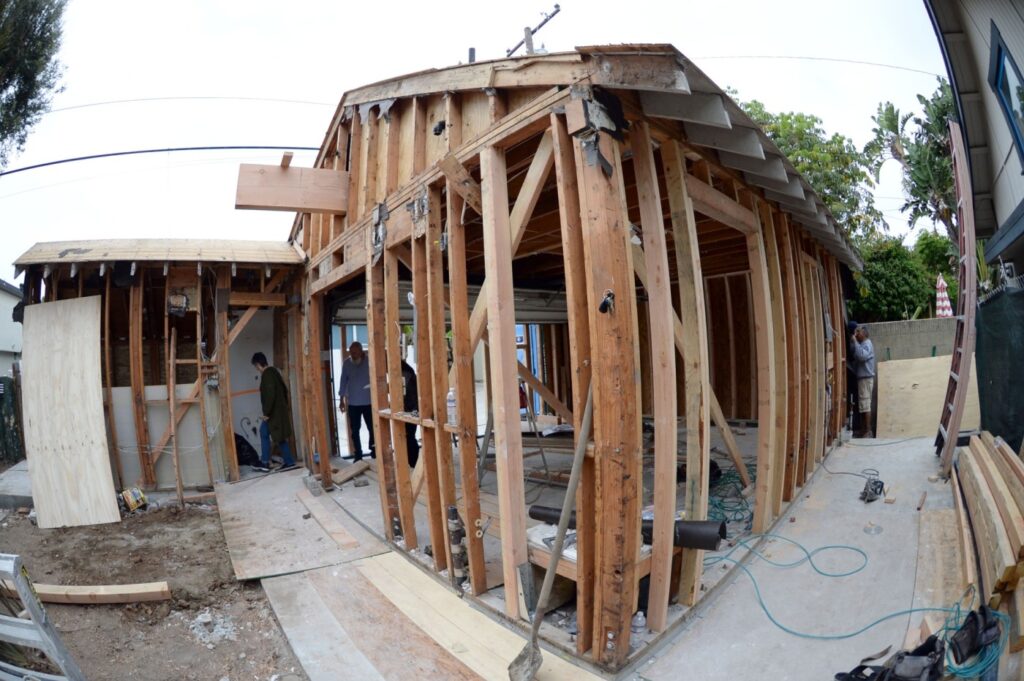
In just three weeks, a new state law goes into effect that requires cities to allow homeowners to build duplexes and/or split lots in single-family zones. The controversial SB 9 was part of a package of 31 bills signed by Gov. Gavin Newsom this fall to ease the increasingly dire affordable housing crisis in California.
Cities vehemently resisted the passage of SB 9, calling it another intrusion on local control of land use. State legislators argued that restrictive zoning has fueled the alarming rise in homelessness, skyrocketing rents and home prices that shut out young families from the American Dream.
What happens on Jan. 1? Some cities say they’ll sue — on dubious legal grounds. A proposed initiative bankrolled by the AIDS Healthcare Foundation aims to reassert local control. A handful of cities are threatening to enact local laws to thwart SB 9 implementation.
Yet given the housing crisis, it appears a majority of the public side with the state over local city halls. An L.A. Business Council Institute/L.A. Times poll released last week showed 55% of voters back the new law, just 27% oppose it and 18% are undecided or don’t know enough to have an opinion. One poll is not definitive, but the lopsided sentiments indicate that cities may be out of step with their own residents.
Part of the explanation is that affluent (often retired) homeowners are the loudest constituents of local elected officials, who frequently come from that same aging demographic. Baby Boomers who enjoy Proposition 13 tax breaks exert disproportionate sway on local government and see themselves as the embattled bedrock of stable “community character.” Many insist their neighborhoods remain unchanged. Younger voters who missed out on the benefits of rising property values have a different perspective. The best they can hope for from the status quo is to hang on as rents rise faster than incomes. That growing constituency has a direct stake in change.
A similar hysteria swept local governments and homeowner associations when the state forced cities to allow “accessory dwelling units.” Called ADUs in government speak, these smaller rear units used to be called granny flats or backyard cottages. Along with duplexes and garden apartments, these dwellings were once common in residential neighborhoods throughout California until rigid zoning rules forbade them. Under recent legislation, cities must now allow them in single-family zones. Ironically, as cities scramble to plan for their share of new housing, many local governments now claim that a surge in ADU construction will relieve the pressure for higher-density development.
State legislation can’t substitute for responsible planning at the local level. Pasadena recently took the sensible step of adopting “objective standards” for implementing SB 9 on an emergency basis to be ready to accept applications as soon as City Hall reopens after the Rose Parade. The mayor and City Council wisely chose to strike inflammatory criticism of the state from the law to make clear they will abide by it despite their previous opposition. The new standards comply with SB 9 and add protections for yards and trees.
Reasonable people can disagree about how best to solve California’s housing crisis. What’s beyond debate, however, is that something must be done. SB 9 is far from perfect, and on its own, far from a solution. Yet it offers a promising opportunity for people of modest means to live in increasingly pricey neighborhoods, and for homeowners to offset the high costs of their mortgages.
Instead of standing in the doorway to thwart the law, level-headed local officials will make New Year’s resolutions to open the door to housing opportunities.
Rick Cole is a former mayor of Pasadena and served as city manager of Azusa, Ventura and Santa Monica. [email protected].
